Table of Contents
ToggleIn the fast-paced world of technology, everyone wants a piece of the SaaS pie, but not everyone has the time or resources to bake their own. Enter the white label SaaS reseller—a superhero in disguise, ready to swoop in and save the day. With a flick of a wrist and a sprinkle of branding magic, they transform existing software into their very own product.
Overview of White Label SaaS Reseller
White label SaaS resellers operate by utilizing existing software products and branding them under their own names. This setup allows businesses to enter the software market with minimal investment and development time. By doing so, they can offer customers software that meets specific needs without the complexities of product creation.
Many companies prefer this model because it streamlines the entry into competitive markets. Resellers leverage established software, ensuring high quality and reliability as they rebrand and resell. The overhead costs associated with product development often deter startups; white label solutions eliminate these concerns.
A key advantage involves scalability. Resellers can manage multiple products without needing extensive development resources. Each software solution can cater to different niches, enabling businesses to diversify their offerings. As a result, they can target varied customer segments effectively.
White label SaaS also provides flexibility in pricing strategies. Resellers can adjust pricing based on their target audience while maintaining profit margins. This adaptability to market trends helps companies stay competitive.
In terms of support, resellers typically rely on the software providers for updates and maintenance. This collaboration ensures that all products remain current and secure. As these companies focus on marketing and customer acquisition, they can grow their businesses rapidly without technical interruptions.
White label SaaS reseller programs continue to gain traction as businesses seek efficient paths to market. This model not only enhances brand visibility but also responds swiftly to customer demands, making it an attractive choice for many entrepreneurs.
Benefits of Becoming a White Label SaaS Reseller

White label SaaS reselling offers numerous advantages for businesses looking to expand. Significant benefits include increased revenue potential and enhanced brand recognition.
Increased Revenue Potential
Resellers tap into established software markets to drive sales. By leveraging existing products, they reduce development costs significantly, leading to higher profit margins. Access to multiple SaaS solutions means resellers can cater to diverse customer needs simultaneously. Market demand for SaaS continues to grow, creating further opportunities for revenue streams. Additionally, resellers can implement tailored pricing strategies that align with their target markets. By capitalizing on these trends, businesses maximize their financial returns in a competitive landscape.
Brand Recognition and Customization
Reselling white label software enables businesses to build their brand presence. Customization allows for tailored solutions that reflect unique brand identities. When customers recognize a brand’s commitment to quality, trust increases, driving loyalty. Rebranding existing software lets resellers engage customers with a personalized experience. Enhanced visibility in the market strengthens their position, allowing for greater influence over customer choices. Overall, this model fosters a strong connection between resellers and users, benefiting everyone involved.
Key Features to Look for in White Label SaaS Solutions
Choosing the right white label SaaS solution requires careful consideration of essential features that ensure success. Several factors contribute to an effective and profitable white label SaaS offering.
Scalability and Flexibility
Scalability stands as a crucial feature of any white label SaaS solution. Resellers can expand their offerings effortlessly as business demands increase. Flexibility in product options allows resellers to tailor solutions to various market niches and customer needs. Companies can quickly add new features or services based on feedback and market trends. The ability to support multiple clients without a significant investment makes responsiveness a priority. A robust infrastructure ensures smooth operation even during growth phases.
User-Friendly Interface
User experience plays a vital role in software effectiveness. A user-friendly interface enhances engagement and reduces the learning curve for customers. Intuitive design features ensure that users can navigate the software easily. Quickly accessing tools and functionalities improves productivity for both resellers and end-users. Clear documentation and training resources can elevate customer satisfaction. Focus on usability often leads to higher retention rates, as satisfied customers are more likely to recommend the product.
Challenges Faced by White Label SaaS Resellers
White label SaaS resellers encounter several challenges that hinder their growth and effectiveness in the market.
Competition in the Market
Competition in the white label SaaS sector can be intense. Numerous resellers often offer similar products, making differentiation difficult. Establishing a robust brand identity becomes crucial for attracting and retaining customers. Resellers face pressure to provide unique features or superior services that stand out from competitors. Additionally, staying abreast of market trends and user expectations plays a vital role in maintaining competitiveness. Adopting innovative marketing strategies can help build customer loyalty and enhance brand recognition amidst the saturation.
Technical Support and Maintenance
Technical support and maintenance pose challenges for resellers. Relying on software providers for updates and troubleshooting can create dependency. Delays or inadequate support from developers may impact customer satisfaction. Resellers must ensure they understand their product thoroughly to provide adequate first-line support. Knowledge of software performance and common issues enhances their capability in addressing user concerns. Effective communication with the software provider can help streamline these processes, ensuring that resellers remain equipped to assist their customers efficiently.
Strategies for Success as a White Label SaaS Reseller
Resellers can adopt various strategies to ensure success in the competitive white label SaaS market. Fostering strong relationships with clients plays a crucial role in building loyalty and trust.
Building Strong Relationships with Clients
Effective communication helps resellers understand client needs better. Resellers can tailor their services accordingly, ensuring customer satisfaction. Regular check-ins create opportunities for feedback, allowing for prompt adjustments to enhance user experience. Providing exceptional customer support strengthens these relationships. In addition, clients appreciate personalized interactions, which show that their business matters. Celebrating client successes can further solidify the partnership, creating loyal advocates who refer others.
Marketing and Promotion Techniques
Developing a comprehensive marketing strategy is essential for resellers to attract new customers. Utilizing social media platforms boosts visibility and engagement. Content marketing can establish authority, providing valuable insights and showcasing expertise. Email campaigns target specific audience segments, enhancing conversion rates. Offering free trials encourages users to experience the software before committing. Aligning marketing messages with customer pain points demonstrates understanding, resonating with potential buyers. Collaborating with influencers can also expand reach and credibility, drawing more clients to the reseller’s brand.
Embracing the white label SaaS reseller model opens up a world of opportunities for entrepreneurs. By leveraging existing software solutions, they can enter the market with reduced risk and investment. This approach not only enhances brand visibility but also allows resellers to cater to diverse customer needs through customization and tailored pricing.
As the demand for SaaS continues to grow, resellers who focus on building strong customer relationships and providing exceptional support will thrive. Staying informed about market trends and maintaining effective communication with software providers are essential for success. Overall, the white label SaaS reseller path presents a viable and rewarding avenue for those looking to carve out their niche in the software industry.







